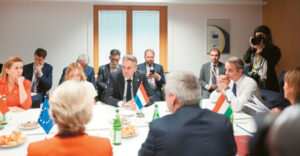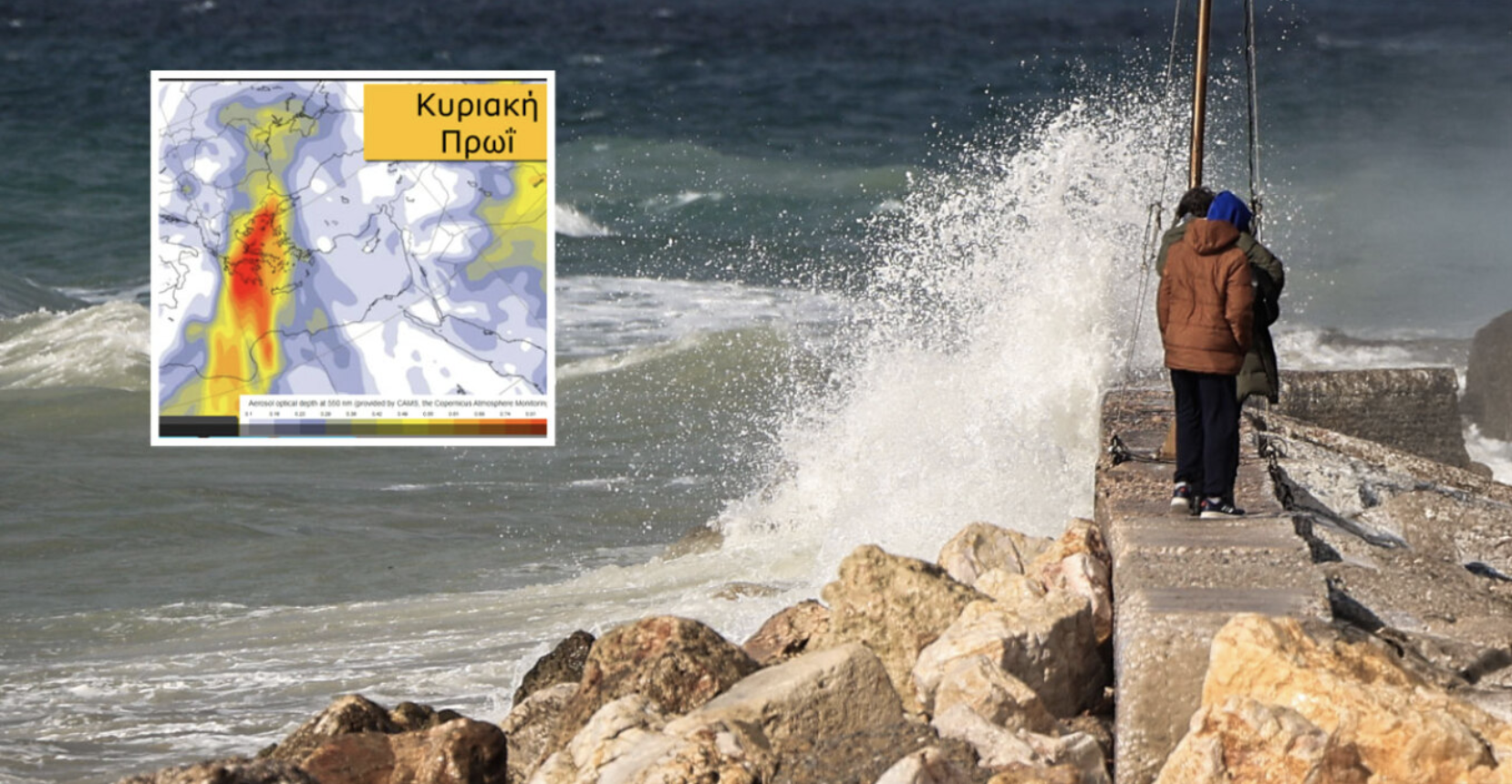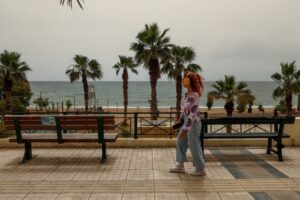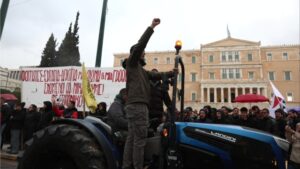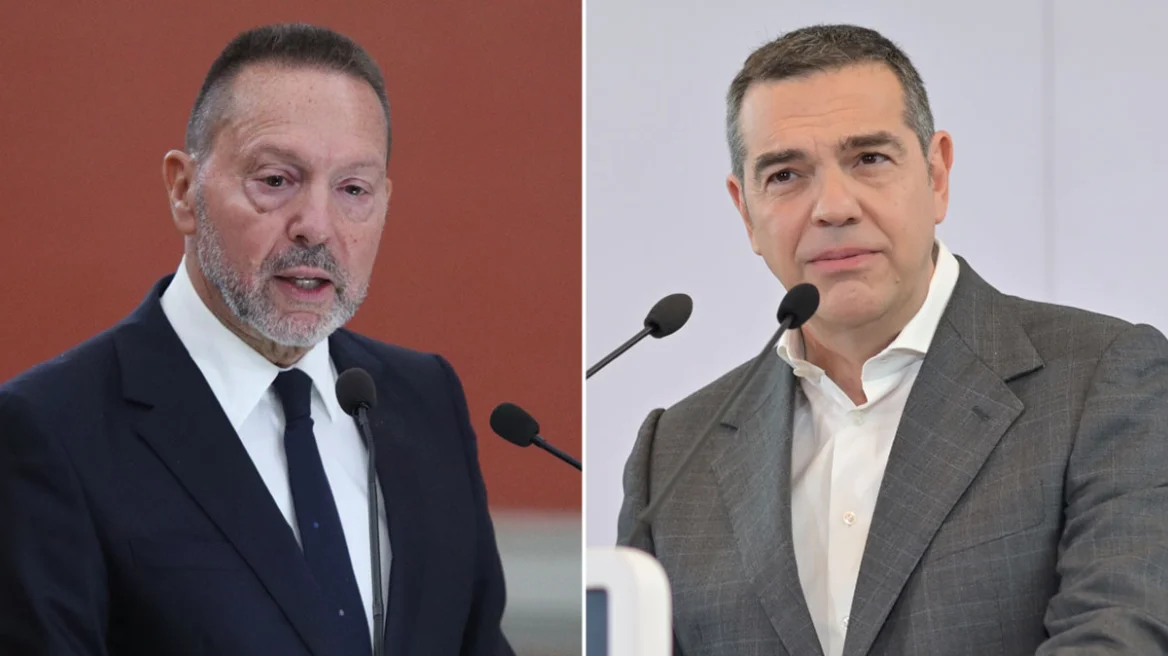The recent Brussels summit, which had immigration as its main menu, may have ended without a result, but Kyriakos Mitsotakis does not appear pessimistic. Not only because he believes that progressively Europeans are coming closer to the Greek position, realizing that the root of the problem is how to discourage migrants from coming onto European soil. But mainly because he believes that in the coming period, there will be a European common ground on deportations of illegal migrants who are not entitled to asylum – only 1 in 5 of those who do not have refugee status leave European territory.
Mitsotakis understands that the Commission also needs time, but at Thursday’s closed meeting, he noted the changing mood in the Union. There may be no European agreement, but there seems to be a common direction towards tightening the rules, which will take “legal shape” in the coming months. Of course, Mitsotakis insists that in the process of tightening up, the Immigration and Asylum Pact, which provides for specific policies on both burden-sharing and external borders, should not be “ripped up”, but rather should be complemented by common rules on returns.
Summit
The issue of returns was raised not only at the Summit plenary session but also at a meeting that Mitsotakis held Thursday morning with 10 other European leaders. One of the issues discussed was Syria, as ten years after the outbreak of the civil war there are many Europeans who believe that a priori anyone coming from the country cannot be considered a refugee. Such a change, say supporters of this view, could be made through European intervention to create infrastructure for the return of migrants, especially voluntary returns.
This development, however, seems somewhat distant. Mitsotakis also points out that Turkey should also be pushed harder to accept the return of migrants who have passed through it to Europe, which is a key parameter of the 2016 Joint Declaration but is not being observed in practice.
The Italian model
Against this background, the Commission is invited in the next period, and more realistically given the December Summit, to present a coherent proposal that reflects political priorities but is also legitimate. And this is where the hardest part begins. There is much talk of the“Italian model” with the closed center opened in Albania under a bilateral agreement that will process asylum claims of those intercepted by Italian authorities in international waters rather than those landed on Italian territory.
The Italian proposal is not rejected a priori by Athens, although Mitsotakis is more skeptical about its applicability. Germany is similarly concerned about whether it is workable on a large scale. Mr. Mitsotakis, on the other hand, is more open to another idea that has probably slipped through the cracks: closed migrant centers outside the EU, where those migrants who are to be deported would be taken.
The idea is still at a theoretical level, but it could form part of a coherent proposal on deportations, as both asylum applications would be processed on European soil and migrants would not be left stranded. The prime minister, however, understands that both time and legal adjustments are needed, but insists that Europe should now think outside the box.
The legal
Mitsotakis, however, does not ignore the need for legal migration, given the significant gaps in several productive sectors of the economy, such as agriculture. He is talking about agreements to call up workers to have an organized movement of third-country citizens who can come to Greece with a contract of employment.
The prime minister said something similar to the Financial Times, asking who would pick the olives in Greek fields, leading to a social media… right-wing rant on the title of the article. It was another case like Giorgos Gerapetritis’s quote regarding the Greek-Turkish discussions that he… which earned him the disgrace of “minority”.
Mitsotakis is greatly annoyed by the right-wing sidelining of political parties and the media over Greece-Türkiye and the immigration issue, more or less describing the government as “submissive” and the border security policy as “light”. Hence, he decided to draw a red line himself, showing his tolerance limit, but also sending the message that he will no longer let such provocations go unanswered, nor will he allow impressions to be created that do not correspond to reality.
Ask me anything
Explore related questions
